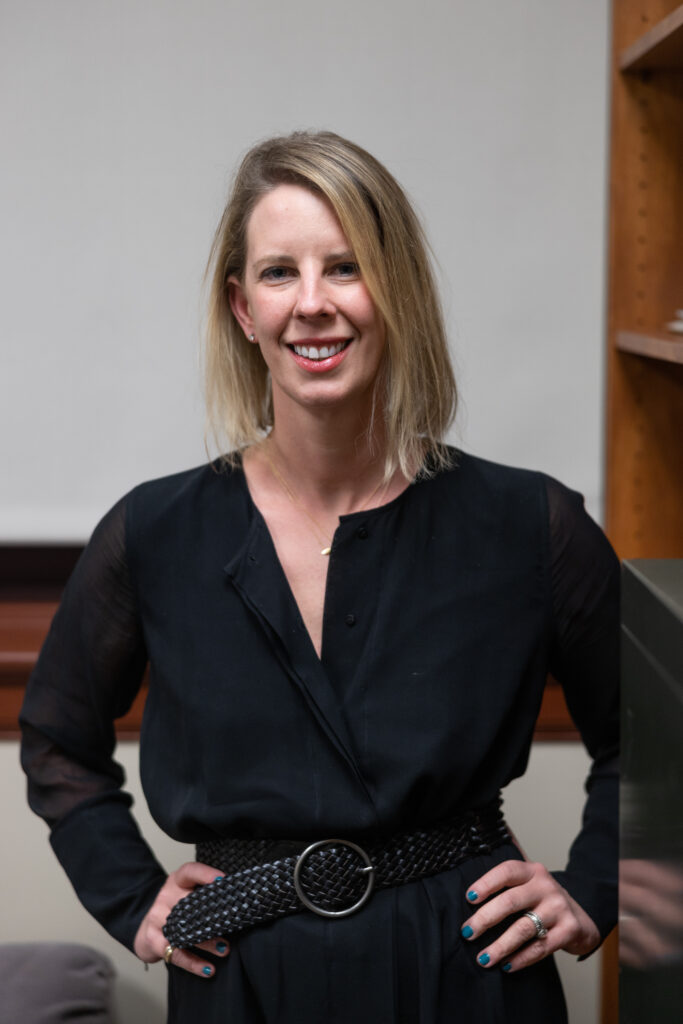Professor Annie Morgan’s Pursuit of Human Rights in Guantanamo Bay
By Kyle Hammerness, Features Editor
Annie Morgan ’06, adjunct professor of political science, comes from Frackville, PA, a small rural town in a large military recruiting area. When it came time for her to go to college, she had to forge her own path and with the help of a high school teacher, she found that Gettysburg College was the right fit.
At Gettysburg, Morgan double majored in political science and philosophy. She recalled waking up for Professor Gimbel’s 8 a.m. logic class and credited him for “a perfect on the logic section” of the LSAT.
After graduating from Gettysburg, she worked with human rights and international law at the U.S. Embassy in Athens. She enrolled at George Washington University Law School to become a human rights attorney.
Morgan remembers her career counselor saying she “needed to quit law school and join the Foreign Service, and that human rights law jobs didn’t exist.”
Before her 3L year, Morgan was accepted into the Air Force becoming an Air Force Judge Advocate (JAG). Every new Air Force JAG starts as a prosecutor and, from there, the best are selected for defense work. This experience as a prosecutor taught Morgan that she enjoyed criminal law, but not prosecution. It was not satisfying to her.
“I really liked the courtroom but am a terrible prosecutor. Plus, I am really good at advocating for other people,” she said.
She has defended everything from drug offenses to sexual assault to murder. Morgan excelled, and she began taking cases at the appellate level. When someone is convicted, they have a right to an appeal. As a defense attorney, her job on appeal was to have the conviction thrown out or the sentence reduced.
This defense work placed her in a great position to take advantage of new opportunities. A former Air Force Appellate Defense Division mentor contacted her to be on Abd al-Rahim Al-Nashiri’s capital murder case. Currently, Al-Nashiri is detained in Guantanamo Bay for his alleged involvement in the bombing of the USS Cole in October 2000. At the time, she was about to go on maternity leave. Morgan applied and was let out of her military contract and began working on this case with six-month-old twins at home.
When asked about what she does daily for Mr. Al-Nashiri, she said, “for example, today, I filed a motion to declassify certain people and conversations. Some of the more trite examples are when I fight routinely to make sure [Mr. Al-Nashiri] can get the CD’s he wants so he can listen to pop music because we tortured the guy for four years so maybe just like a moment of his life can be beautiful instead of terrible.”
This case definitely affected how she views the legal system. She referenced the Martin Luther King Jr. quote about the moral arc of the universe bending towards justice; however, she put her own twist on it: “I love my country so much, but the moral arc of Guantanamo Bay is broken, and until that is fully recognized and embraced, I don’t know if my faith in my country will recover.”
She continued, “It’s constantly a battle for transparency, and the government continues to engage in prosecutorial misconduct and unethical behavior which is why we are still here 11 years later. They’ve said even if my client gets acquitted that they’ll hold him indefinitely. [These cases] are the literal definition of show trials.”
Because of the reputation of the man she defends, she has faced some professional backlash including being called “an adversary of America” in open court by a one star general. Her response was “If you think that’s an insult because I’m standing up for the Constitution and the rule of law. Do you think I’m an adversary of America after serving in the armed services?”
This article originally appeared on page 6 of the December 2022 edition of The Gettysburgian’s magazine.

